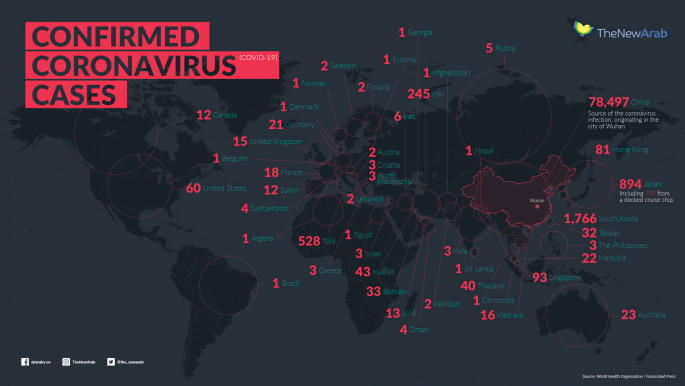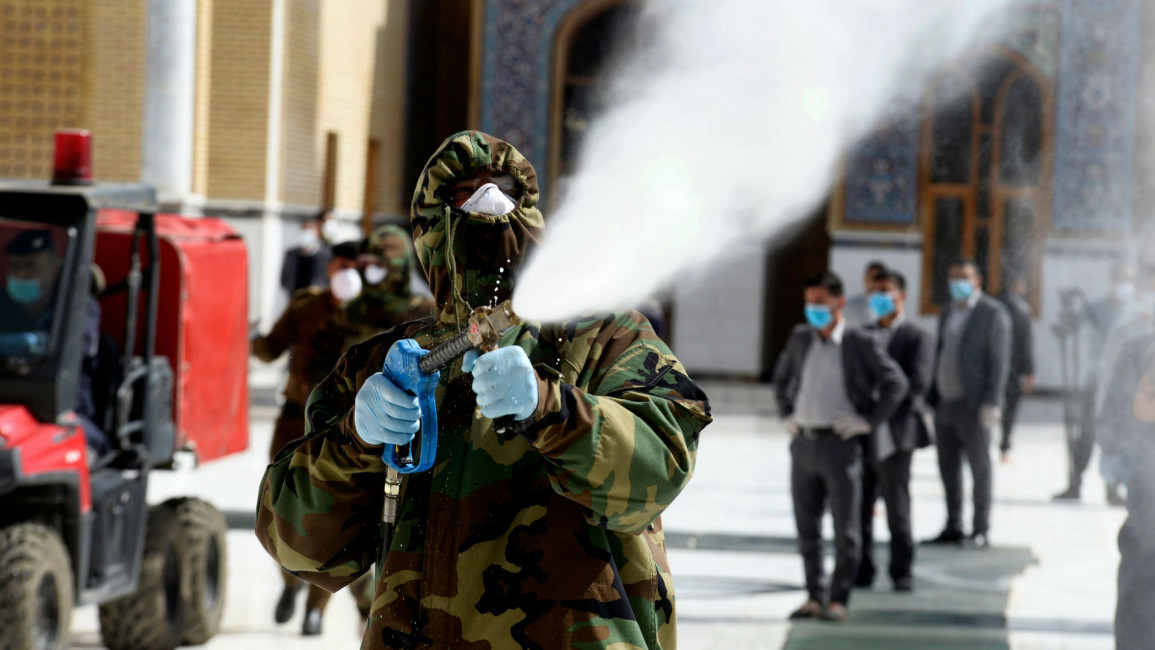Iraq closes public spaces as first coronavirus hits capital, panic spreads in the Middle East
Iraq announced the first confirmed case of coronavirus in the capital Baghdad on Thursday, taking nationwide infections to six and raising concerns about the capacity of the dilapidated health system to respond.
The government announced sweeping measures to try to contain the spread of the virus, ordering the closure of schools and universities, cafes, cinemas and other public spaces until 7 March.
It also banned travel to or from some of the worst affected countries, including China, Iran, Japan, South Korea, Thailand, Singapore, Italy, Kuwait and Bahrain.
Iraq had already blocked entry for foreigners travelling from neighbouring Iran, the main source of coronavirus infections in the Middle East, or China, where COVID-19 originated.
The health ministry said the first case in Baghdad was in a young man who had recently returned from Iran.
Iran has reported 19 fatalities from 139 infections - the highest death toll outside China.
The patient was placed under quarantine in a Baghdad hospital and is currently "in good health," it said in a statement.
Iraq's six confirmed cases have all been traced to neighbouring Iran, a popular tourism destination for Iraqis, who also visit the country to receive medical treatment.
 |
Many hospitals in Iraq are poorly equipped or in disrepair and there are fewer than 10 doctors for every 10,000 people, the World Health Organisation says.
Baghdad is the Arab world's second most populous city after the Egyptian capital Cairo.
The health ministry advised against large gatherings, urging officials to take steps to "restrict intermixing," a move that may deal a blow to anti-government protests that have gripped Baghdad and southern Iraq since October.
The Iraqi football federation said its games would be played in empty stadiums until further notice.
Saudi Arabia bans pilgrimage
Saudi Arabia has also suspended entry into the kingdom for visitors hoping to perform the Umrah pilgrimage in order to prevent the spread of the novel coronavirus, the state news agency said.
Individuals hoping to perform the voluntary Umrah pilgrimage or visit the Prophet's mosque in Medina - Islam's second holiest site - will be temporarily barred from entry, the official Saudi Press Agency reported on Thursday.
Nearly 7.5 million people performed the Umrah pilgrimage last year. The optional rite can be undertaken at any point during the year, unlike the obligatory Hajj pilgrimage. Many pilgrims also go on to travel to the Prophet's mosque in Medina, one of the largest in the world.
Tourists from countries in which "the spread of the coronavirus poses a risk" will also be temporarily prohibited from entering Saudi Arabia, SPA added.
The kingdom has not specified to which countries this new rule applies.
Saudi Arabia has not yet had a confirmed case of the novel coronavirus, also known as Covid-19.
Neighbouring countries Iraq, Bahrain, Kuwait, Oman and the United Arab Emirates have however confirmed a number of cases.
Follow us on Facebook, Twitter and Instagram to stay connected



